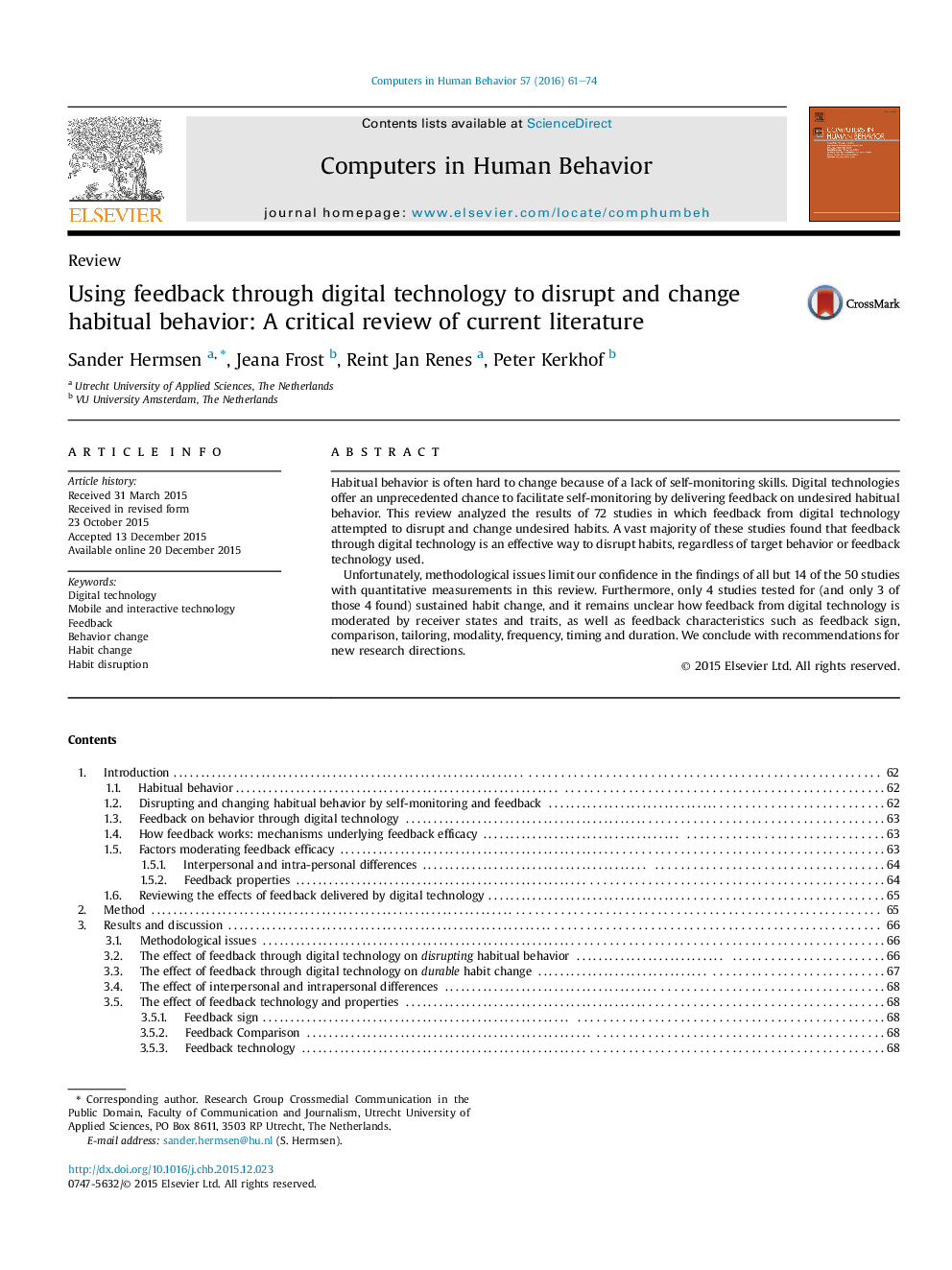| کد مقاله | کد نشریه | سال انتشار | مقاله انگلیسی | نسخه تمام متن |
|---|---|---|---|---|
| 350206 | 618433 | 2016 | 14 صفحه PDF | دانلود رایگان |
• Feedback through digital technology can disrupt undesirable habits.
• However, it remains unclear whether this disruption leads to durable habit change.
• The effect of feedback characteristics and user states and traits remain understudied.
• Findings from this review can be used to inform the development of feedback-based products.
Habitual behavior is often hard to change because of a lack of self-monitoring skills. Digital technologies offer an unprecedented chance to facilitate self-monitoring by delivering feedback on undesired habitual behavior. This review analyzed the results of 72 studies in which feedback from digital technology attempted to disrupt and change undesired habits. A vast majority of these studies found that feedback through digital technology is an effective way to disrupt habits, regardless of target behavior or feedback technology used.Unfortunately, methodological issues limit our confidence in the findings of all but 14 of the 50 studies with quantitative measurements in this review. Furthermore, only 4 studies tested for (and only 3 of those 4 found) sustained habit change, and it remains unclear how feedback from digital technology is moderated by receiver states and traits, as well as feedback characteristics such as feedback sign, comparison, tailoring, modality, frequency, timing and duration. We conclude with recommendations for new research directions.
Journal: Computers in Human Behavior - Volume 57, April 2016, Pages 61–74
